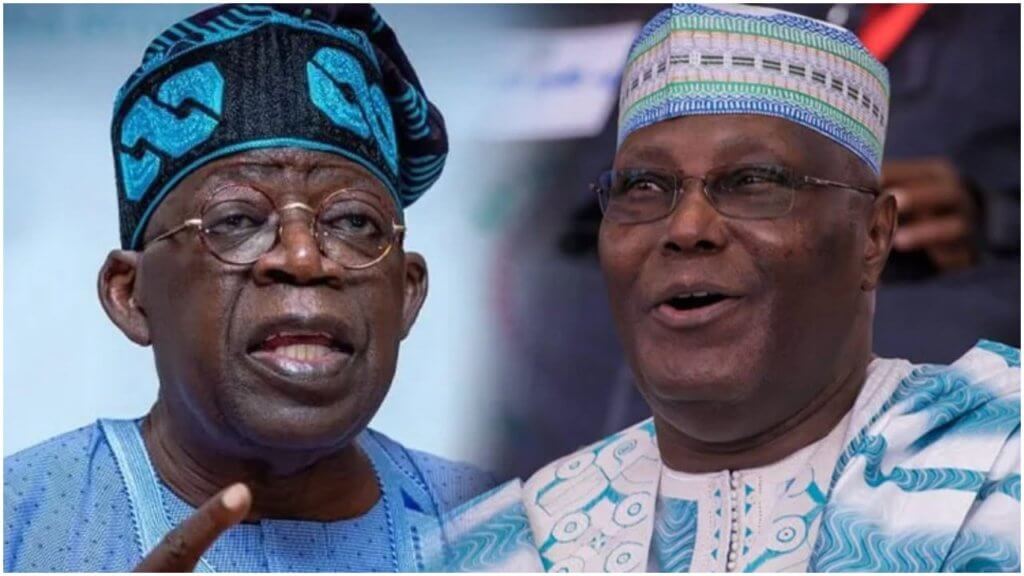Election 2023: The future of Nigeria’s ailing oil economy

As Nigeria gears up to elect a new president in February 2023, a major issue dominating the political discourse is the country’s bleeding oil sector plagued with dwindling production, illegal oil bunkering and theft, pollution, and corruption.
The two main contenders, Bola Tinubu of the ruling All Progressive Congress (APC), and Atiku Abubakar, candidate of the People’s Democratic Party (PDP), have expressed different views on how Nigeria’s economy should be managed.
Endowed with billions of barrels of crude oil reserves and natural gas reserves in excess of 200 trillion cubic feet, many Nigerians believe the country’s natural resources benefit a few politicians and their cronies at the expense of ordinary citizens.
Nigeria’s oil sector is often in the news for corruption, thievery, pollution, and violent attacks. The second-largest oil producer in Africa has projected to increase its daily crude oil production from the current 1.2 million bpd (as of November 2022) to 1.6 million bpd and generate 1.92 trillion Naira (4.2 billion USD) in 2023.
Challenges in Nigeria’s Oil Sector
A recent report by the Nigeria Extractive Industries Transparency Initiative (NEITI) on the severity of oil theft in the West African nation revealed very disturbing information. Between the period of 2009 and 2020, Nigeria lost 619.7 million barrels of crude oil valued at $45 billion or N16.25 trillion to oil theft.
The losses were from theft and sabotage, based on information and data provided by an average of eight companies. According to the NEITI, the local chapter of the global Extractive Industries Transparency Initiative (EITI), 2016 recorded the highest losses of 101.05 million barrels valued at $4.42 billion.
The report accused some Nigerian government officials in the oil and gas industry of allegedly receiving bribes to facilitate and secure oil contracts and other business advantages for Glencore Energy UK.
Another challenge facing the country’s oil industry is environmental pollution. Big oil spills are common in the Niger Delta where, according to a report by CNN, over 40 million litres of crude oil are spilled annually, resulting in human deaths and damage to the local ecosystem.
In November 2020, a Federal High Court in Nigeria ordered Shell Petroleum Development Company of Nigeria (SPDC) to pay US$8 billion to communities in River State who accused the firm of an oil spill that damaged waterways and farms.
Also, Nigeria, according to an article published on the World Bank Blog, is one of the top seven gas-flaring countries in the world. The report estimates that around 2 million people live less than 4km from a flare site.
Bola Tinubu’s Solution
Bola Tinubu promises to stop the fuel subsidy introduced by the Nigerian government to give some relief to petroleum consumers in Nigeria when he gets the nod. The APC candidate believes he can increase Nigeria’s crude oil production to 2.6 mbpd by 2027 and
4mbpd by 2030.
He also promises to complete critical gas infrastructure projects including pipeline infrastructure to increase Nigeria’s daily gas production. To address the development gap in host communities, the former Legos State Governor pledges to implement the Host Community Development Trust which seeks to encourage oil companies to assist host communities
However, his critics say his campaign message gives little attention to the issues of oil theft and how he would deal with the problem, which has become the biggest threat to the Nigerian economy. They also blame him for not giving details on how he intends to develop the country’s gas infrastructure to increase gas production.
Abubakar Atiku’s Solution
The former Nigerian Vice President’s solution to oil theft is to put measures in place to identify the people involved and prosecute them. He says there will be no hiding place for oil thieves and their accomplices if he becomes the next President of Nigeria.
He wants Nigeria to be run like a business venture and pledges to push for more private-sector involvement in Nigeria’s petroleum industry activities. Atiku believes the involvement of the private sector is key to addressing the challenges in Nigeria’s oil sector.
Atiku supervised the sale of government-owned businesses which had become ineffective when he was Vice President from 1999 to 2007. His major principle is that government has no business doing business and believes the private sector must take up that responsibility.
However, he has often been accused of cronyism. His critics see his loyalty to friends and business partners as a major flaw
The Future of Nigeria’s Oil Economy
A new political leader will face the difficult task of making the country’s oil resource a blessing to its 216 million population, instead of a few politicians and businesspeople.
Nigeria has missed its oil-earning forecasts in recent years and has failed to meet the OPEC+ production quota due to widespread theft and corruption in the country’s oil industry.
Investors also turn away from the Nigerian economy due to the negative perception of corruption and violence in the country. Many Nigerians believe the solution to the problems in the country’s oil-dependent
economy needs nothing more than the political will of its leaders.
Whoever emerges as the leader of the country for the next four years needs to address these problems and work to restore public confidence and trust in the country’s political system.
By Francis Kyei, Senior Market Analyst, GFX-Prime
Email: francis.kyei@gfxprime.com
Disclaimer: This article has been prepared by GFX-Prime, an African investment firm with its registered office on the 2nd Floor, PWC Towers, Cantonments City, Accra Ghana. This article has been issued for information purposes only. GFX-Prime does not recommend or propose that the securities referred to in this article are appropriate or suitable for your
investment objectives or financial needs